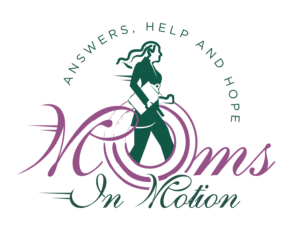For those of you with children that have developmental disabilities, or those of you who have them yourself, it’s extremely important to know what options you have in regards to Medicaid waivers, additional services and support.
So, how can Medicaid waivers help you? What do they do for you? Here’s our full guide on how Virginia Medicaid Waivers can assist you.
What are Medicaid Waivers?
First things first, what are Medicaid waivers?
These waivers are a provision in Medicaid law that allows the government to waive certain rules that typically apply to the Medicaid program at the federal level. By doing this, they are allowing states to individually accomplish certain targets like expanding coverage, reducing their costs, and improving the care for target groups as needed.
Having these Medicaid waivers allows states to provide specific services to their residents that normally would not be covered by Medicaid.
Virginia Medicaid Waiver Options
So, what are your options for Virginia Medicaid waivers?
Virginia Medicaid offers multiple waivers that provide various different supports. These include Community Living (CL)One of the three types of developmental disability (DD) Medicaid waivers in Virginia, the Community Living (CL) Waiver is aimed for the minority of our population who have extremely high medical, behavioral, or support needs and provides 24/7 active services. More, Commonwealth Coordinated Care Plus (CCC), and Family and Individual Supports (FIS)One of the three types of developmental disability (DD) Medicaid waivers in Virginia, the Family and Individual Supports (FIS) Waiver is the waiver for the majority of people – those who need supports for between a few hours and most hours of the day, including overnight monitoring in some cases. More. The Medicaid waivers offer different services such as companion careA waiver-paid service focused on presence of a caregiver for safety, but less on hands on caregiving. More, personal care, and respiteShort-term care for a child or adult that allows the primary caregiver relief. More to those who need it. Here are some of the specifics.
Community Living & Family and Individual Supports
Community Living and Family and Individual Supports waivers offer all of the following services to those with developmental disabilitiesThe Americans with Disabilities Act (ADA) defines a person with a disability as a person who has a physical or mental impairment that substantially limits one or more major life activity. This includes people who have a record of such an impairment, even if they do not currently have a disability. It also includes people who do not have a disability but are regarded as having a disability. The ADA also makes it unlawful to discriminate against a person based on that person’s association with a person with a disability. More:
- Assistive technologyProducts, equipment, and systems that enhance learning, working, and daily living for persons with disabilities. More
- CD companion services
- CD personal assistance services
- CD respite
- CD services facilitation
- Environmental modifications
The qualifications for these waivers include:
- You must have a documented diagnosis of either a developmental disability or an intellectual disability
- You must be eligible for Medicaid when you’re assigned to a waiver. However, Medicaid eligibility is not necessary when it comes to applying for screening or just to be added to the waitlist.
Commonwealth Coordinated Care (CCC Plus)
The Department of Medical Assistance Services combined the Tech Waiver and the EDCD Waiver to create the Commonwealth Coordinated Care (CCC Plus) in 2017.
The CCC Plus waiver includes those who were previously served under the Elderly and Disabled with Consumer Direction (EDCD) and the Technology Assistance Waivers are included in CC Plus.
The waiver offers care that includes behavioral health, physical health, institutional, and community-based services. Those who are living with disabilities and/or are aging are able to be served by CCC Plus.
The Difference Between Agency-Directed and Consumer-DirectedServices where the person using them is allowed to select, hire, fire, and train their particular caregiver(s). More
It is also important to consider the differences between agency-directed and consumer-directed.
Agency-directed is where an agency is responsible for providing direct support staff, scheduling times/dates for the direct support staff’s time in someone’s community and home, and maintaining a person’s records.
Consumer-directed is a model of service delivery where either the person or their employer of record is responsible for hiring, firing, supervising, and training of the person who provides the direct services and support covered by DMAS (and whose ages are paid by DMAS through its fiscal agent).
CCC Plus, CL and FIS all utilize both agency and consumer direction as a service delivery model.
How Moms In Motion Can Help
So, how can Moms In Motion help you with any questions and assistance you need when it comes to Virginia Medicaid waivers?
We offer waiver presentations to help you learn more about what Medicaid waivers can offer you. On top of that, we also have a self-eligibility tool to allow you to determine whether or not you are eligible for the waivers.
You can also reach out to us at any time for further questions. Contact us today!

